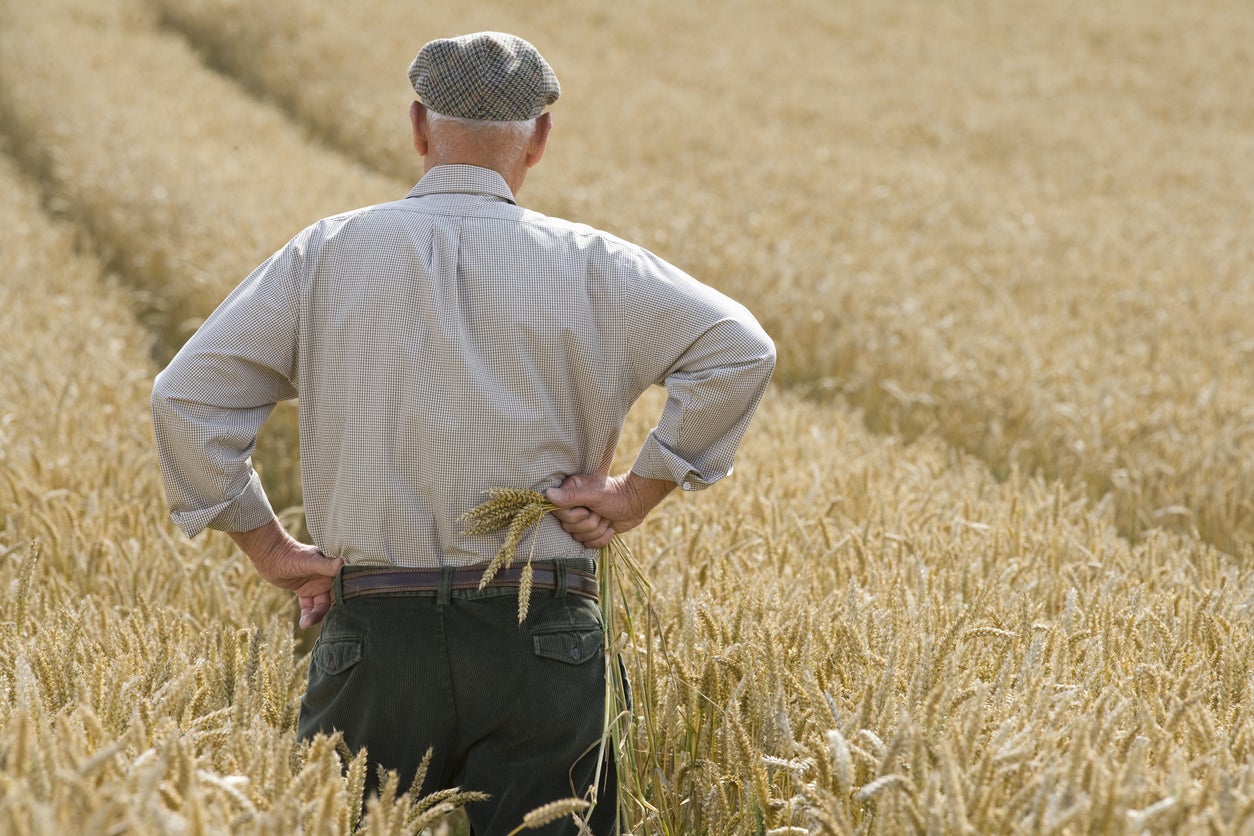Brexit is an opportunity for British farmers – first, though, we must learn from our French counterparts
Earlier this month, France unveiled a national strategy to increase vegetable protein production and Brexit should persuade us to follow suit, writes Marc Coloma


Negotiations over a post-Brexit trade deal have exposed the fragility of the UK’s farming model – particularly that of meat farming and its reliance on EU markets.
Currently, the UK farming model is one of meat and few veg. While the UK produces much of the meat it consumes (it has 109 per cent self-sufficiency in lamb and 75 per cent self-sufficiency in beef), domestic production of fruit and vegetables is a different story. According to Defra, home production of vegetables accounts for only around 54 per cent of the total UK supply, with most of our imports coming from Spain or the Netherlands.
As Dave Goulson, a professor of biology at the University of Sussex has suggested, whatever you might think about Brexit, it has the potential to help transform farming and the way the UK produces fruit and vegetables – if the government radically reshaped the industry by redirecting subsidies from meat farming to fresh produce.
As Professor Goulson has pointed out, there is no logical reason for the UK to be growing so little fruit and vegetables and importing so much when it has the conditions to grow a wide variety of produce. There’s plenty of resources, too: the quantity of land used to grow vegetables takes up less than one per cent of total agricultural land area in the UK.
Redirecting subsidies towards producing more fruit and vegetables – and legumes, too – would also marry with changing public attitudes towards healthier eating. One consequence of Covid-19 and the first national lockdown in the spring is that it saw a change in public attitudes towards meat-free diets. According to a survey by Mintel, 25 per cent of British millennials say the pandemic has made a vegan diet more appealing. It also found a vegan diet is proving more attractive to more than one in ten (12 per cent) of all Brits.
Changing the model would have environmental benefits as well. Reports show the meat and dairy industry is on track to become the world’s biggest contributor to climate change, outstripping even fossil fuel companies. Beef and lamb, in particular, have high greenhouse gas emissions: the global mean emissions for one kilogram of beef equates to 100kg of carbon emissions.
The latest study in this area, published last month by a team of researchers from institutions including Oxford University, Stanford University and the University of Minnesota, showed that at least some element of dietary change in terms of eating less meat will be needed to keep global warming to below 1.5C above pre-industrial levels, the most optimistic target of the Paris Agreement.
This latest report was a landmark moment in that it was the first time a study had concluded that immediately halting all other sources of emissions wasn’t going to be enough: without changing food systems, we are likely to miss the 1.5C target in 30 to 45 years and the 2C target within the next 100 years.
The UK government has already made a commitment to cut down on other causes of emissions, such as the ban on petrol and diesel cars from 2030. So, redirecting subsidies to increase production of fruit and vegetables in the UK farming industry would go some way to addressing necessary change in food systems.
Last month, the UK government published its Agricultural Transition Plan, proposing changes that will come into force over seven years to help farmers adapt and plan for the future and which, it says, will support farmers introducing sustainable farming practices.
Here, the UK could take a leaf out of France’s book. Earlier this month, France unveiled a new national strategy for plant proteins, with an ambition to increase vegetable protein production domestically for nutrition, agri-food independence and sustainability. Around one million hectares of agricultural land in France is currently allocated to crops, such as soy, peas, pulses and legumes, and the French government aims to increase that by 40 per cent by 2022. As Julien Denormandie, the Minister of Agriculture said: “France’s dependence on imports remains too great. We must… regain agri-food sovereignty.”
2021 will mark the start of a transition period where the UK government will begin to phase out payments, to be replaced with new policies co-designed and tested with farmers. The government says that changes will be designed to ensure that, by 2028, farmers in England can sustainably produce healthy food profitably without subsidy, while taking steps to improve the environment and reduce carbon emissions.
What could fit better with this than incentivising greater domestic production of more fruit and vegetables?
Marc Coloma is CEO and co-founder of Heura Foods
Subscribe to Independent Premium to bookmark this article
Want to bookmark your favourite articles and stories to read or reference later? Start your Independent Premium subscription today.




Join our commenting forum
Join thought-provoking conversations, follow other Independent readers and see their replies
Comments